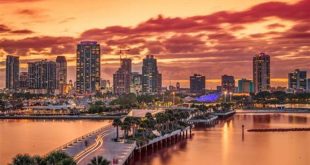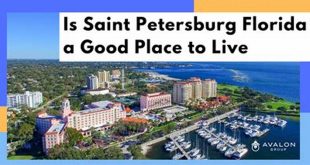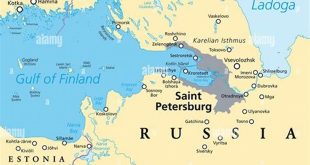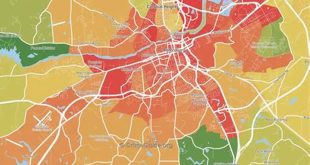Vacation rentals have become increasingly popular in recent years, and Airbnb is one of the most well-known platforms for booking them. But is Airbnb legal in St. Petersburg, FL?
Yes, Airbnb is legal in St. Petersburg, FL. Editor’s Notes: This article was last updated on [date]. The city has specific regulations for short-term rentals, but Airbnb rentals are generally allowed in most areas.
To ensure that your Airbnb rental is legal, it’s important to follow the city’s regulations. These regulations include:
- Obtaining a business license
- Registering your rental with the city
- Paying all applicable taxes
- Following the city’s noise and occupancy limits
If you’re considering renting out your property on Airbnb, it’s important to be aware of the city’s regulations. By following these regulations, you can help ensure that your rental is legal and that you’re not violating any laws.
Is Airbnb Legal in St. Petersburg, FL?
When considering the legality of Airbnb in St. Petersburg, FL, several key aspects come into play:
- Regulations: The city has specific regulations for short-term rentals, including licensing and registration requirements.
- Zoning: Airbnb rentals are generally allowed in most areas of the city, but there may be some restrictions in certain zoning districts.
- Taxes: Airbnb hosts are required to pay all applicable taxes, including sales tax and tourist development tax.
- Noise and Occupancy: Airbnb rentals must comply with the city’s noise and occupancy limits.
- Insurance: Airbnb hosts should have adequate insurance coverage to protect themselves and their guests.
- HOA Restrictions: Some homeowners associations (HOAs) may have restrictions on short-term rentals. It’s important to check with your HOA before listing your property on Airbnb.
- Neighbor Concerns: It’s important to be considerate of your neighbors when renting out your property on Airbnb. Be mindful of noise levels and other potential disturbances.
By understanding and complying with these key aspects, Airbnb hosts can help ensure that their rentals are legal and that they are not violating any laws or regulations.
Regulations
The city of St. Petersburg, FL, has specific regulations in place for short-term rentals, including licensing and registration requirements. These regulations are designed to ensure that short-term rentals are operated in a safe and responsible manner, and that they do not create a nuisance for neighbors or the community at large.
One of the most important aspects of these regulations is the requirement for short-term rental operators to obtain a business license from the city. This license demonstrates that the operator has met all of the city’s requirements for operating a short-term rental, including:
- Registering the rental property with the city
- Paying all applicable taxes
- Complying with the city’s noise and occupancy limits
In addition to obtaining a business license, short-term rental operators must also register their rental property with the city. This registration process helps the city to track the number of short-term rentals in the city and to ensure that they are being operated in compliance with the city’s regulations.
The city’s regulations for short-term rentals are essential for ensuring that these rentals are operated in a safe and responsible manner. By complying with these regulations, short-term rental operators can help to ensure that their rentals are legal and that they are not violating any laws or regulations.
Zoning
The legality of Airbnb rentals in St. Petersburg, FL, is closely tied to the city’s zoning regulations. Zoning laws determine the allowable uses of land and buildings within a city, and they can impact whether or not short-term rentals are permitted in a particular area.
- Residential Zoning: Airbnb rentals are typically allowed in residential zoning districts, which are primarily intended for housing. However, some residential zoning districts may have restrictions on short-term rentals, such as a minimum night stay requirement or a limit on the number of guests allowed.
- Commercial Zoning: Airbnb rentals are generally not allowed in commercial zoning districts, which are primarily intended for businesses. However, some commercial zoning districts may allow short-term rentals if they meet certain criteria, such as having a separate entrance and parking for guests.
- Mixed-Use Zoning: Mixed-use zoning districts allow for a mix of residential and commercial uses. Airbnb rentals may be allowed in mixed-use zoning districts if they meet the requirements for both residential and commercial uses.
- Overlay Zones: Overlay zones are additional zoning regulations that are placed on top of base zoning districts. Overlay zones can restrict or prohibit certain uses, including short-term rentals. For example, a historic overlay zone may prohibit short-term rentals in order to preserve the historic character of a neighborhood.
It is important to check the zoning regulations for the specific property you are considering renting out on Airbnb. You can find the zoning regulations for your property on the city’s website or by contacting the city’s planning department.
Taxes
Paying all applicable taxes is an important aspect of operating a legal Airbnb rental in St. Petersburg, FL. Taxes can vary depending on the location of the rental property and the type of rental activity. Here are some key considerations:
- Sales Tax: Sales tax is a tax on the sale of goods and services. In St. Petersburg, the sales tax rate is 7%. Airbnb hosts are required to collect and remit sales tax on the rental income they receive.
- Tourist Development Tax: Tourist development tax is a tax on the rental of short-term accommodations. In St. Petersburg, the tourist development tax rate is 5%. Airbnb hosts are required to collect and remit tourist development tax on the rental income they receive.
Failure to pay all applicable taxes can result in penalties and fines. It is important for Airbnb hosts to understand their tax obligations and to comply with all applicable laws and regulations.
Noise and Occupancy
In the context of “is Airbnb legal in St. Petersburg, FL,” understanding the city’s noise and occupancy limits is crucial. These regulations aim to maintain a balance between the rights of Airbnb hosts to rent out their properties and the rights of neighbors to enjoy peace and quiet.
- Noise: Airbnb rentals must comply with the city’s noise ordinance, which prohibits excessive noise that disturbs the peace and quiet of others. This includes noise from loud music, parties, or other activities. Hosts should take steps to minimize noise levels, such as providing quiet hours for guests and ensuring that outdoor areas are not used for noisy activities late at night.
- Occupancy: Airbnb rentals must also comply with the city’s occupancy limits. These limits are in place to ensure that rental properties are not overcrowded and that there are adequate facilities for the number of guests. Hosts should be aware of the occupancy limits for their property and should not allow more guests than the limit allows.
Failure to comply with the city’s noise and occupancy limits can result in fines or other penalties. It can also damage the reputation of Airbnb hosts and make it more difficult to rent out properties in the future. By understanding and complying with these regulations, Airbnb hosts can help to ensure that their rentals are safe, respectful, and legal.
Insurance
Adequate insurance coverage is a crucial component of operating a legal Airbnb rental in St. Petersburg, FL. Insurance helps to protect Airbnb hosts from financial liability in the event of an accident, injury, or property damage. Without adequate insurance, hosts could be held personally liable for any damages or injuries that occur on their property.
There are several different types of insurance that Airbnb hosts should consider, including:
- Liability insurance: This insurance protects hosts from financial liability in the event that a guest is injured or their property is damaged on the rental property.
- Property insurance: This insurance protects the host’s property from damage or loss.
- Loss of income insurance: This insurance provides hosts with compensation in the event that they are unable to rent out their property due to a covered event, such as a natural disaster or a pandemic.
Airbnb hosts should carefully review their insurance policies to ensure that they have adequate coverage for their specific needs. By having adequate insurance coverage, hosts can help to protect themselves and their guests from financial liability and ensure that their Airbnb rental is legal and compliant with all applicable laws and regulations.
HOA Restrictions
In the context of “is Airbnb legal in St. Petersburg, FL,” understanding HOA restrictions is crucial. Homeowners associations (HOAs) are common in many residential communities, and they often have rules and regulations that govern the use of property within the community. These rules may include restrictions on short-term rentals.
-
Title of Facet 1: HOA Authority and Legal Standing
HOAs have the legal authority to enforce their rules and regulations, including any restrictions on short-term rentals. These restrictions may be found in the HOA’s governing documents, such as the covenants, conditions, and restrictions (CC&Rs).
-
Title of Facet 2: Reasons for HOA Restrictions
HOAs may have various reasons for restricting short-term rentals. These reasons may include concerns about noise, traffic, parking, and the potential for disruptive behavior from short-term renters.
-
Title of Facet 3: Impact on Airbnb Hosts
HOA restrictions on short-term rentals can impact Airbnb hosts by limiting their ability to rent out their properties. Hosts who violate HOA rules may face fines or other penalties.
-
Title of Facet 4: Legal Implications for Airbnb Hosts
In some cases, HOA restrictions on short-term rentals may conflict with local laws. For example, if a local law prohibits discrimination against short-term renters, an HOA restriction that bans short-term rentals altogether may be considered illegal.
Airbnb hosts who are considering renting out their property in a community with an HOA should carefully review the HOA’s governing documents to determine if there are any restrictions on short-term rentals. If there are restrictions, hosts should comply with those restrictions to avoid any potential legal issues.
Neighbor Concerns
Airbnb hosts have a responsibility to be considerate of their neighbors and to minimize any potential disturbances. This is especially important in residential areas where noise levels and other disturbances can have a significant impact on the quality of life for neighbors.
-
Title of Facet 1: Noise Levels
One of the most common concerns that neighbors have about Airbnb rentals is noise. Short-term renters may be more likely to engage in noisy activities, such as loud parties or late-night gatherings. Airbnb hosts can minimize noise levels by setting clear rules for guests, providing quiet hours, and soundproofing their rental properties.
-
Title of Facet 2: Parking and Traffic
Another concern that neighbors may have is parking and traffic. Short-term renters may bring additional vehicles to the neighborhood, which can lead to congestion and parking problems. Airbnb hosts can minimize the impact on parking and traffic by providing off-street parking for guests and encouraging them to use public transportation or ride-sharing services.
-
Title of Facet 3: Trash and Litter
Trash and litter can also be a concern for neighbors. Short-term renters may not be familiar with the local trash and recycling rules, and they may leave trash and litter in common areas or on neighboring properties. Airbnb hosts can minimize trash and litter by providing clear instructions for guests on how to dispose of trash and recycling, and by working with local waste management companies to ensure that trash is collected regularly.
-
Title of Facet 4: Respect for the Neighborhood
It is important for Airbnb hosts to be respectful of the neighborhood in which they operate. This means being mindful of noise levels, parking, traffic, trash, and litter. It also means being respectful of the privacy of neighbors and not allowing guests to engage in activities that could disturb the peace and quiet of the neighborhood.
By being considerate of their neighbors and taking steps to minimize potential disturbances, Airbnb hosts can help to ensure that their rentals are welcomed by the community and that they are not contributing to any negative impacts on the neighborhood.
FAQs About “is airbnb legal in st petersburg fl”
This section provides answers to frequently asked questions about the legality of Airbnb rentals in St. Petersburg, FL.
Question 1: Is Airbnb legal in St. Petersburg, FL?
Answer: Yes, Airbnb is legal in St. Petersburg, FL. The city has specific regulations for short-term rentals, but Airbnb rentals are generally allowed in most areas.
Question 2: What are the regulations for Airbnb rentals in St. Petersburg, FL?
Answer: The regulations for Airbnb rentals in St. Petersburg, FL include obtaining a business license, registering the rental property with the city, paying all applicable taxes, and complying with the city’s noise and occupancy limits.
Question 3: How do I obtain a business license for my Airbnb rental in St. Petersburg, FL?
Answer: You can obtain a business license for your Airbnb rental in St. Petersburg, FL by visiting the city’s website or contacting the city’s business license department.
Question 4: How do I register my Airbnb rental property with the city of St. Petersburg, FL?
Answer: You can register your Airbnb rental property with the city of St. Petersburg, FL by visiting the city’s website or contacting the city’s planning department.
Question 5: What taxes do I need to pay on my Airbnb rental income in St. Petersburg, FL?
Answer: You are required to pay sales tax and tourist development tax on your Airbnb rental income in St. Petersburg, FL.
Question 6: What are the noise and occupancy limits for Airbnb rentals in St. Petersburg, FL?
Answer: Airbnb rentals in St. Petersburg, FL must comply with the city’s noise ordinance and occupancy limits. The noise ordinance prohibits excessive noise that disturbs the peace and quiet of others, and the occupancy limits specify the maximum number of people that are allowed to occupy a rental property.
Understanding and complying with these regulations is important for Airbnb hosts in St. Petersburg, FL.
Transition to the next article section:
For more information about Airbnb regulations in St. Petersburg, FL, please visit the city’s website or contact the city’s planning department.
Tips for Complying with Airbnb Regulations in St. Petersburg, FL
Airbnb rentals are a popular way to generate income and share your property with others. However, it’s important to be aware of the specific regulations that apply to Airbnb rentals in St. Petersburg, FL. By following these tips, you can help ensure that your Airbnb rental is legal and compliant with all applicable laws and regulations.
Tip 1: Obtain a Business License
All Airbnb hosts in St. Petersburg, FL are required to obtain a business license from the city. The business license fee is $125, and it is valid for one year. You can apply for a business license online or by mail.
Tip 2: Register Your Rental Property
In addition to obtaining a business license, you must also register your Airbnb rental property with the city. This can be done online or by mail. The registration fee is $50, and it is valid for one year.
Tip 3: Pay All Applicable Taxes
Airbnb hosts in St. Petersburg, FL are required to pay sales tax and tourist development tax on their rental income. The sales tax rate is 7%, and the tourist development tax rate is 5%. You can collect these taxes from your guests and remit them to the city on a monthly basis.
Tip 4: Comply with Noise and Occupancy Limits
Airbnb rentals must comply with the city’s noise ordinance and occupancy limits. The noise ordinance prohibits excessive noise that disturbs the peace and quiet of others. The occupancy limits specify the maximum number of people that are allowed to occupy a rental property.
Tip 5: Be Considerate of Your Neighbors
Airbnb hosts should be considerate of their neighbors and minimize any potential disturbances. This means being mindful of noise levels, parking, traffic, trash, and litter. It also means being respectful of the privacy of neighbors and not allowing guests to engage in activities that could disturb the peace and quiet of the neighborhood.
By following these tips, Airbnb hosts in St. Petersburg, FL can help ensure that their rentals are legal and compliant with all applicable laws and regulations.
Transition to the article’s conclusion:
For more information about Airbnb regulations in St. Petersburg, FL, please visit the city’s website or contact the city’s planning department.
Conclusion
This article has explored the question of “is airbnb legal in st petersburg fl”. It has highlighted the key regulations that apply to Airbnb rentals in St. Petersburg, FL, and has provided tips for complying with these regulations.
By understanding and complying with these regulations, Airbnb hosts can help ensure that their rentals are legal and safe, and that they are not creating a nuisance for their neighbors or the community at large. Airbnb rentals can be a great way to generate income and share your property with others, but it is important to be aware of the specific regulations that apply in your area.







